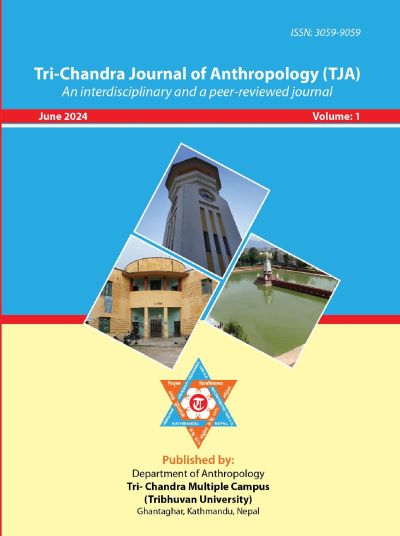Construction of Large Dam: Thinking Dynamics and Struggle of Displaced People
DOI:
https://doi.org/10.3126/tja.v1i1.68016Keywords:
Large dam, displacement, resettlement, social trauma, thinking dynamicsAbstract
In this modern era, mega development projects are largely responsible to bring about social change in rural community. These development interventions have direct or indirect impacts on the life of rural people. Dam construction for hydropower requires confiscation of large land and eventually displaces large number of people. Kulekhani hydropower project is one of few projects in Nepal that has its own reservoir unlike others which relies on run-off-the-river facilities. Thus being one of the large land acquiring project, it has displaced many people, of which, published works are not available regarding the social and cultural practices of displaced people in the aftermath of their displacement from original homeland. This study was conducted in 2018 on Kulekhani Hydropower Project focusing on the dam development from the perspective of psychological, social and cultural landscape of its affected people.This research is largely based on the primary data collected direct from the field study using biographical interview method, which cover the compensation they received and its utilization pattern, change in their old and new lifestyle and socio-economic status of the displaced people. Research shows that development projects displace people from their roots which cause lots of trouble in the beginning but gradually the displaced people develop the capacity to think according to new environment and with a new perspective which is obviously different that the one they had in their origin.




